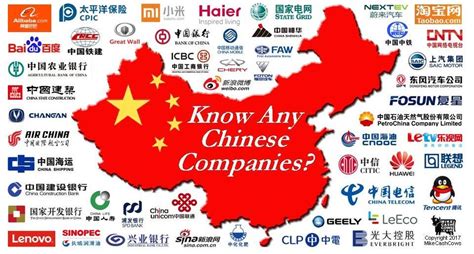are companies reluctant to work with china ,Many U.S. Companies Plan to Keep China Ties, Survey Finds,are companies reluctant to work with china,For decades politicians in Washington might have been mistaken for lobbyists for American companies in China. They pushed for the country to be opened up to American banks, planes and fast-food . J12 Diamond Bezel Watch Caliber 12.1, 38 mm, White highly resistant ceramic and steel, diamond bezel and indicators on the CHANEL website. . CHANEL Homepage; Watches; J12; J12 White; CHANEL Homepage. explore chanel.com. Haute Couture Fashion High Jewelry Fine Jewelry Watches Eyewear Fragrance Makeup Skincare Sitemap .

The relationship between U.S. companies and China has always been complex, shaped by economic opportunities, political tensions, and shifting global dynamics. As China’s position as the world’s manufacturing hub has solidified over the last few decades, U.S. businesses have flocked to tap into its low-cost labor, sophisticated supply chains, and large consumer market. Yet, recent developments—including rising tariffs, shifting political climates, and trade wars—have raised the question: are American companies reluctant to work with China now?
The Backbone of Global Supply Chains
Historically, American firms have viewed Chinese manufacturing as a vital part of their business strategies. From small trinkets like keychains to massive furniture items like mattresses, American companies have outsourced production to China in droves. The advantages have been clear: China’s infrastructure, labor force, and manufacturing prowess have made it a global leader in producing goods at scale and at lower costs than most other nations.
But even as the U.S. and China have clashed over trade policies, intellectual property theft, and market access, many companies still view Chinese manufacturing as an irreplaceable cog in their global supply chains. Companies that depend on the Chinese market—whether for production or as a consumer base—are finding it increasingly difficult to extricate themselves from these relationships. As tariffs and geopolitical tensions grow, a new question emerges: will these companies leave China, or is the relationship still too crucial to abandon?
Pity American Firms in China: Xi Jinping Strikes Back
For many American companies doing business in China, the political climate has become a major source of anxiety. With President Xi Jinping’s administration becoming increasingly assertive on both the economic and geopolitical fronts, American businesses are often caught in the crossfire of escalating trade wars and retaliatory tariffs. The past few years have seen China hit back against American tariffs with tariffs of its own, raising the cost of doing business for U.S. companies operating in China.
At the same time, Xi's government has increasingly pushed for "Made in China 2025," a plan to upgrade domestic manufacturing capabilities and reduce dependence on foreign companies and technology. For American firms that have relied on China as a low-cost manufacturing hub, these moves are seen as a long-term threat to their businesses.
Despite these growing concerns, many U.S. companies continue to operate in China. The costs of relocating manufacturing—both in terms of time and money—remain a powerful deterrent, and many firms are choosing to maintain their presence in China even as tensions rise. In many cases, U.S. companies that manufacture in China are simply too entrenched in the market to pull out. For them, the Chinese market remains a critical pillar of their operations, and leaving could mean losing access to a significant portion of their global revenue.
As Trade War Heats Up, Most U.S. Businesses Stick It Out
As the trade war between the United States and China intensified under President Donald Trump’s administration, American companies faced a difficult choice. On the one hand, the Trump administration imposed tariffs on a broad range of Chinese goods, forcing companies to pay higher prices for raw materials and finished products. On the other hand, China retaliated with tariffs of its own, making it harder for U.S. companies to export to China.
Despite these challenges, a recent survey showed that the majority of U.S. businesses have opted to stay the course and continue working with China. According to a 2019 survey by the U.S.-China Business Council, 75% of American companies operating in China reported that they would continue to do business there despite the tariffs and economic uncertainty. Some of the reasons for this continued presence include the size and growth potential of the Chinese market, the high level of investment already made in the country, and the difficulty of finding alternative production sources that could match China’s competitive advantage.
The costs of relocating production are immense. U.S. firms that have already set up supply chains in China face significant losses in terms of both time and money if they decide to move their operations elsewhere. While some companies have explored relocating to other parts of Asia or back to the United States, very few can afford to make the switch overnight. The scale of investment in China, both in terms of infrastructure and human capital, is simply too large for most businesses to abandon without major disruptions to their operations.
Companies See China as a Safe Harbor Amid Trump’s Tariffs

are companies reluctant to work with china Shop our faux chanel jewelry selection from top sellers and makers around the world. Global shipping available. . the brooch will elevate your look in the best way possible. Perfect pick to. Category 2010s Italian Aesthetic Movement Brooches. . 14 Ways to Spot a Fake Chanel Bag.
are companies reluctant to work with china - Many U.S. Companies Plan to Keep China Ties, Survey Finds